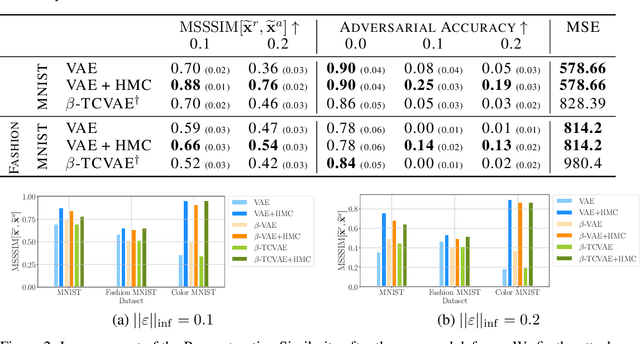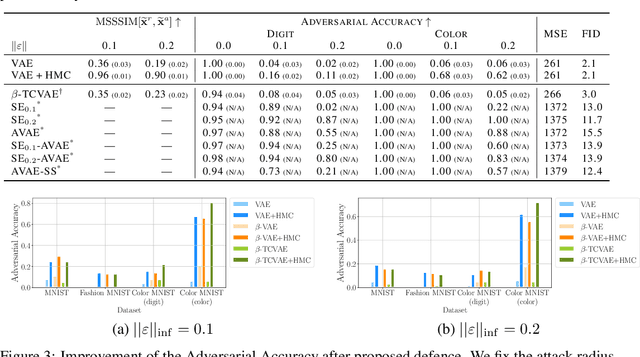Defending Variational Autoencoders from Adversarial Attacks with MCMC
Paper and Code
Mar 18, 2022



Variational autoencoders (VAEs) are deep generative models used in various domains. VAEs can generate complex objects and provide meaningful latent representations, which can be further used in downstream tasks such as classification. As previous work has shown, one can easily fool VAEs to produce unexpected latent representations and reconstructions for a visually slightly modified input. Here, we examine several objective functions for adversarial attacks construction, suggest metrics assess the model robustness, and propose a solution to alleviate the effect of an attack. Our method utilizes the Markov Chain Monte Carlo (MCMC) technique in the inference step and is motivated by our theoretical analysis. Thus, we do not incorporate any additional costs during training or we do not decrease the performance on non-attacked inputs. We validate our approach on a variety of datasets (MNIST, Fashion MNIST, Color MNIST, CelebA) and VAE configurations ($\beta$-VAE, NVAE, TC-VAE) and show that it consistently improves the model robustness to adversarial attacks.
 Add to Chrome
Add to Chrome Add to Firefox
Add to Firefox Add to Edge
Add to Edge